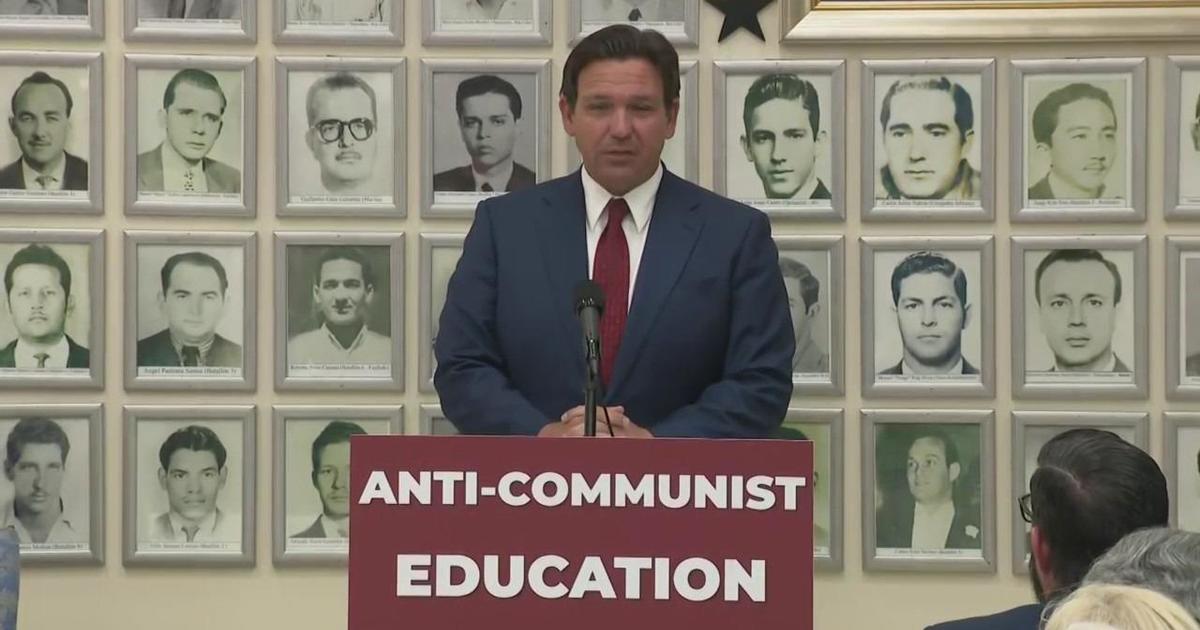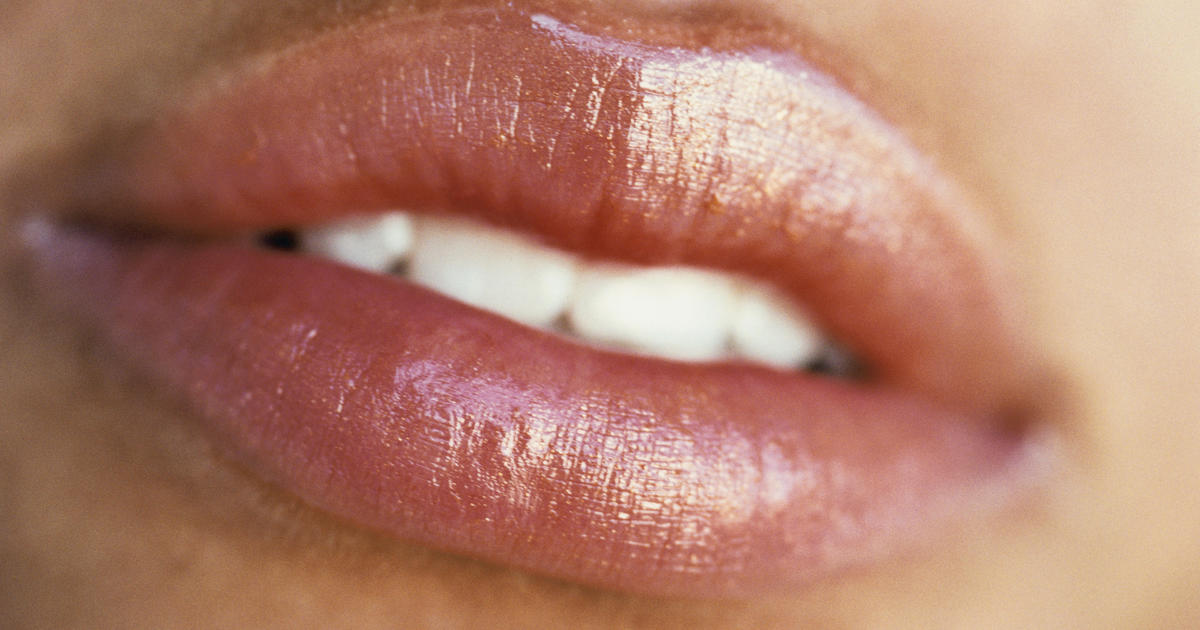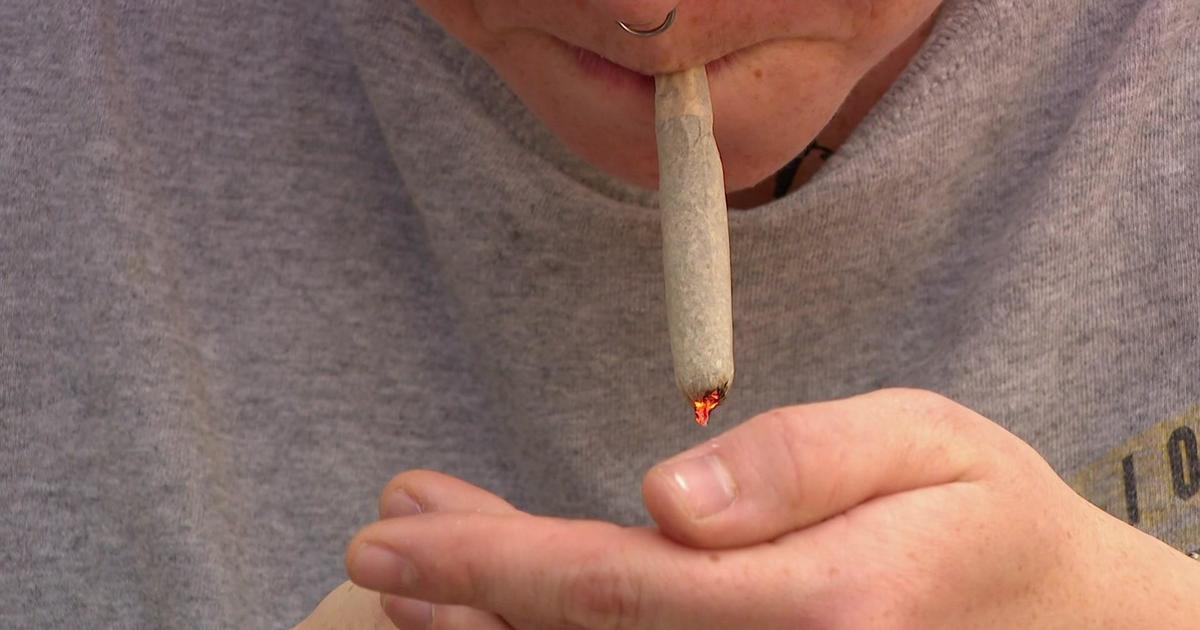U.S., Cuba Restore Full Diplomatic Relations
Follow CBSMIAMI.COM: Facebook | Twitter
MIAMI (CBSMiami) - At the stroke of midnight, full diplomatic relations were restored between the United States and Cuba.
The new era began with little fanfare, the diplomatic missions of each country were upgraded from interests sections to embassies.
In Havana, the U.S. Interests Section uploaded a new profile picture to its Facebook account that says US EMBASSY CUBA.
Conrad Tribble, the deputy chief of mission for the United States in Havana, tweeted: "Just made first phone call to State Dept. Ops Center from United States Embassy Havana ever. It didn't exist in Jan 1961."
In it first official statement, the U.S. Embassy in Cuba issued the following:
"In accordance with President Barack Obama's announcement on July 1, effective today the United States and Cuba have re-established diplomatic relations. The U.S. Interests Section officially became U.S. Embassy Havana, and will continue its diplomatic operations from the Embassy building on the Malecón under the leadership of Chargé d'Affaires ad interim Jeffrey DeLaurentis.
Secretary of State John Kerry will travel to Cuba later this summer to celebrate the re-opening of U.S. Embassy Havana and raise the U.S. flag. Details regarding the re-opening ceremony will be provided in the coming weeks."
Though normalization has taken center stage in the U.S.-Cuba relationship, there remains a deep ideological gulf between the nations and many issues still to resolve. Among them: thorny disputes such as over mutual claims for economic reparations, Havana's insistence on the end of the 53-year-old trade embargo and U.S. calls for Cuba to improve on human rights and democracy. Some U.S. lawmakers, including several prominent Republican presidential candidates, have vowed not to repeal the embargo and pledged to roll back Obama's moves on Cuba.
On Monday, GOP presidential contender Jeb Bush weighed in the change in policy.
Obama's rush to restore diplomatic relations with Cuba is wrong. This embassy will only serve to further legitimize repressive regime.
— Jeb Bush (@JebBush) July 20, 2015
We need an American President to go to Havana only in solidarity with a free Cuban people. http://t.co/ffjEsdoyjT
— Jeb Bush (@JebBush) July 20, 2015
Monday's events cap a remarkable change of course in U.S. policy toward the communist island under President Barack Obama, who had sought rapprochement with Cuba since he first took office and has progressively loosened restrictions on travel and remittances to the island.
Obama's efforts at engagement were frustrated for years by Cuba's imprisonment of U.S. Agency for International Development contractor Alan Gross on espionage charges. But months of secret negotiations led in December to Gross's release, along with a number of political prisoners in Cuba and the remaining members of a Cuban spy ring jailed in the United States. On Dec. 17, Obama and Cuban President Raul Castro announced they would resume full diplomatic relations.
Declaring the longstanding policy a failure that had not achieved any of its intended results, Obama declared that the U.S. could not keep doing the same thing and expect a change. Thus, he said work would begin apace on normalization.
That process dragged on until the U.S. removed Cuba from its list of state sponsors of terrorism in late May and then bogged down over issues of U.S. diplomats' access to ordinary Cubans.
On July 1, however, the issues were resolved and the U.S. and Cuba exchanged diplomatic notes agreeing that the date for the restoration of full relations would be July 20.
"It's a historic moment," said longtime Cuban diplomat and analyst Carlos Alzugaray.
"The significance of opening the embassies is that trust and respect that you can see, both sides treating the other with trust and respect," he said. "That doesn't mean there aren't going to be conflicts — there are bound to be conflicts — but the way that you treat the conflict has completely changed."
Cuba's embassy inside a 16th Street mansion in Washington was officially opened Monday morning with a ceremonial raising of the flag.
Although the Interests Section in Havana won't see the pomp and circumstance of a flag-raising on Monday, workers there have already drilled holes on the exterior to hang signage flown in from the U.S., and arranged to print new business cards and letterhead that say "Embassy" instead of "Interests Section." What for years was a lonely flagpole outside the glassy six-story edifice on Havana's seafront Malecon boulevard recently got a rehab, complete with a paved walkway.
Every day for the last week, employees have been hanging hand-lettered signs on the fence counting down, in Spanish, to Monday: "In 6 days we will become an embassy!" and so on.
Both interests sections have technically operated as part of Switzerland's embassies in Washington and Havana. The Swiss also were caretakers for the former American Embassy and ambassador's residence from 1961 to 1977, when the U.S. had no diplomatic presence in the country at all.
(TM and © Copyright 2015 CBS Radio Inc. and its relevant subsidiaries. CBS RADIO and EYE Logo TM and Copyright 2015 CBS Broadcasting Inc. Used under license. All Rights Reserved. This material may not be published, broadcast, rewritten, or redistributed. The Associated Press contributed to this report.)



